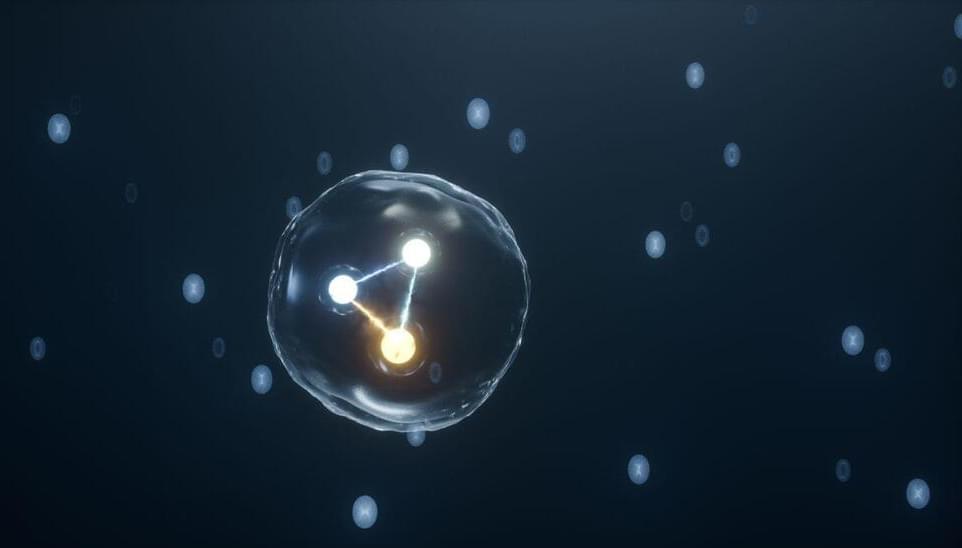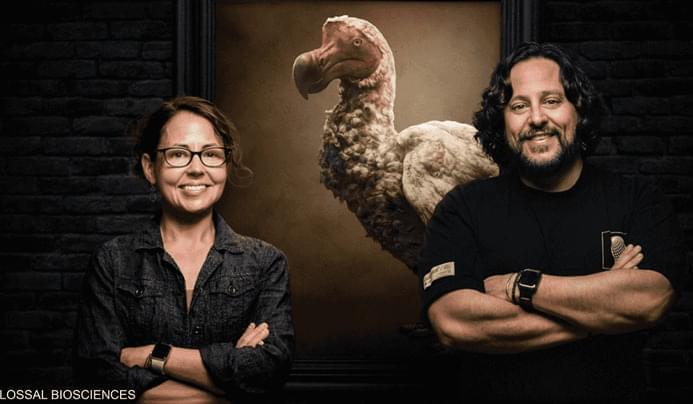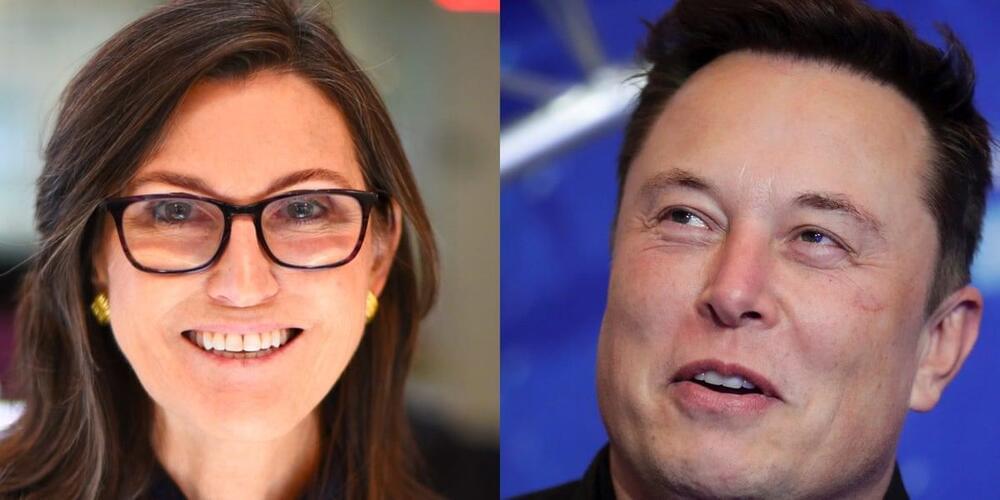Discover how gluons bind quarks together to form protons and neutrons and explore the form weird form of matter in which they existed just after the Big Bang.
Page 3189
Feb 2, 2023
‘Dark Photons’ Potentially Cause Heating Discrepancy in Intergalactic Gas, Research Reveals
Posted by Dan Breeden in category: cosmology

Dark photons, a hypothetical form of dark matter, could explain the heating discrepancy in intergalactic gas. Read on to discover the exciting potential of dark photons in explaining the mysteries of the universe!
Feb 2, 2023
Is synthetic blood just over the horizon? These scientists think it might be
Posted by Paul Battista in category: biotech/medical
Expand (PITTSBURGH, Pa.) — One of the most consistent issues that disaster response teams face is blood shortages. These headaches, caused by short supply and perishability, make blood donations a constant push across the nation. CBS News reports that in Pennsylvania, scientists from the University of Pittsburgh School of Medicine and UPMC are making progress, and could see results within the decade.
Feb 2, 2023
A scientific breakthrough… A bird that has been extinct for centuries is about to come back to life
Posted by Paul Battista in categories: biotech/medical, innovation
According to scientific reports, this study relies on studying the DNA of the bird known as “Dodo”, which lived on the island of Mauritius in the middle of the Indian Ocean until the late seventeenth century, and was unable to fly. It may seem like a fantasy, because the animal has been extinct for centuries, but scientists make it clear that their quest is based on very carefully studied steps.

Do we make conscious decisions? Or are all of our actions predetermined? And if we don’t have free will, are we responsible for what we do? Modern neurotechnology is now allowing scientists to study brain activity neuron by neuron to try to determine how and when our brains decide to act. In this program, experts probe the latest research and explore the question of just how much agency we have in the world, and how the answer impacts our ethics, our behavior, and our society.
This program is part of the Big Ideas Series, made possible with support from the John Templeton Foundation.
Feb 2, 2023
Tesla’s set to cash in on a $1 trillion market for delivery robots that’s on its way, according to Cathie Wood’s Ark
Posted by Kelvin Dafiaghor in category: robotics/AI
Tesla’s data library as well as training and inference tools should help position it to “build other autonomous machines that navigate the physical world”, according to Ark.
Feb 2, 2023
Have We Really Found The Theory Of Everything?
Posted by Dan Breeden in categories: media & arts, quantum physics, space
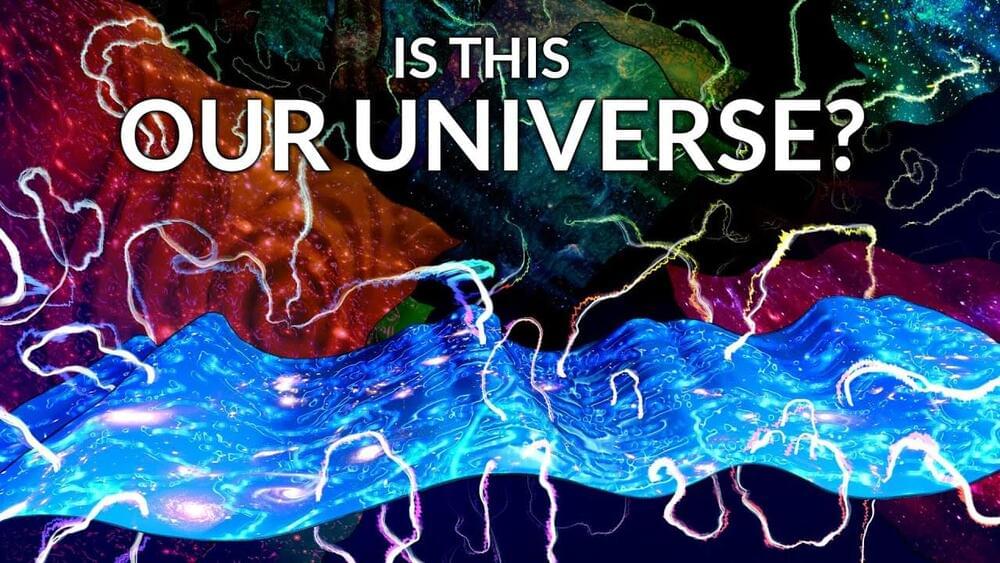
Start using AnyDesk, the blazing-fast Remote Desktop Software, today at https://anydesk.com/en/downloads/windows?utm_source=brand&am…tm_term=en.
Written by Joseph Conlon.
Professor of Theoretical Physics, University of Oxford.
Author, Why String Theory? https://www.amazon.com/Why-String-Theory-Joseph-Conlon/dp/14…atfound-20
Edited and Narrated by David Kelly.
Thumbnail Art by Ettore Mazza.
Animations by Jero Squartini https://fiverr.com/freelancers/jerosq.
Huge thanks to Jeff Bryant for his Calabi-yau animation.
Continue reading “Have We Really Found The Theory Of Everything?” »
Feb 2, 2023
10 biggest world threats of 2023, ranked | Ian Bremmer
Posted by Dan Breeden in categories: energy, futurism
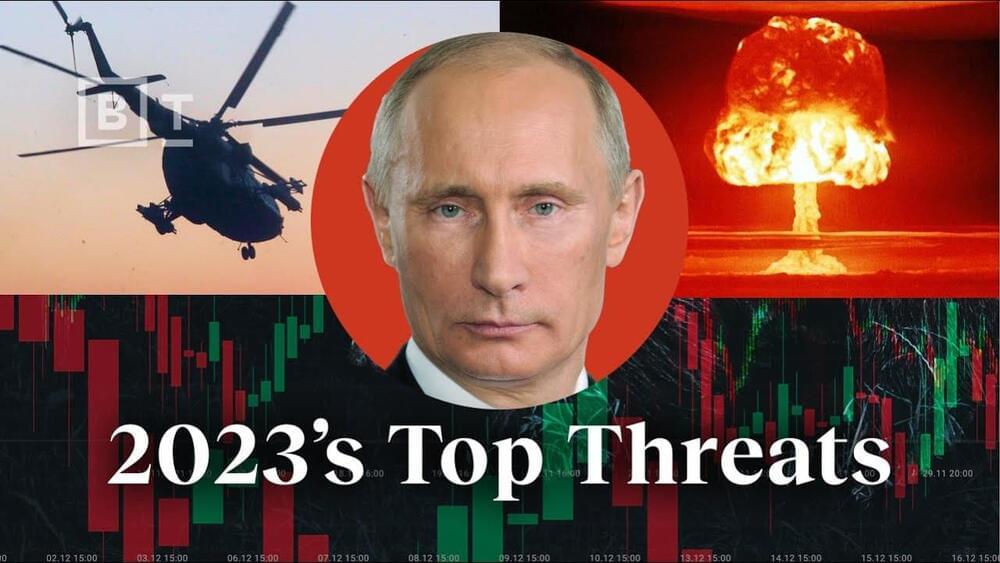
Rogue Putin is the biggest risk of 2023. Here are the other 9, explained by global political expert Ian Bremmer.
Read more of Eurasia Group’s top risks for 2023 ► https://www.eurasiagroup.net/issues/top-risks-2023
Continue reading “10 biggest world threats of 2023, ranked | Ian Bremmer” »
Feb 2, 2023
Pioneering Transhumanism: a conversation with Natasha Vita-More
Posted by Paul Battista in categories: biotech/medical, evolution, mobile phones, neuroscience, transhumanism
Transhumanism is the idea that technology and evidence-based science can and should be used to augment and improve humans in order to overcome the limitations that evolution has left us with. As the name suggests, it stems from humanism, but it adds an optimism that cognitive and physical improvement is both possible and desirable.
On the face of it, the idea that humans should be permitted to use technology to live healthier and happier lives does not sound dangerous, or even contentious. But it does provoke strong opposition: in 2004, Francis Fukuyama called transhumanism “the world’s most dangerous idea”. The force of that claim is somewhat undermined when you consider how wildly wrong his previous big idea turned out to be: in 1992 he declared that because the Cold War ended with the collapse of the Soviet Union, history had come to an end. Nevertheless, Fukuyama is not alone in fearing transhumanism.
Some people object to transhumanism because they think we should strive to be “natural”, and to be content with what evolution – or their god — have given us. But of course the definition of what is “natural” changes over time. Nature didn’t endow us with spectacles, and few people now argue they should be banned. Now we have cochlear implants, and many people feel that their smartphones are extensions of themselves. In the future we will have the option of raising our IQ with smart drugs or with gene therapy, and these will be hotly debated.
